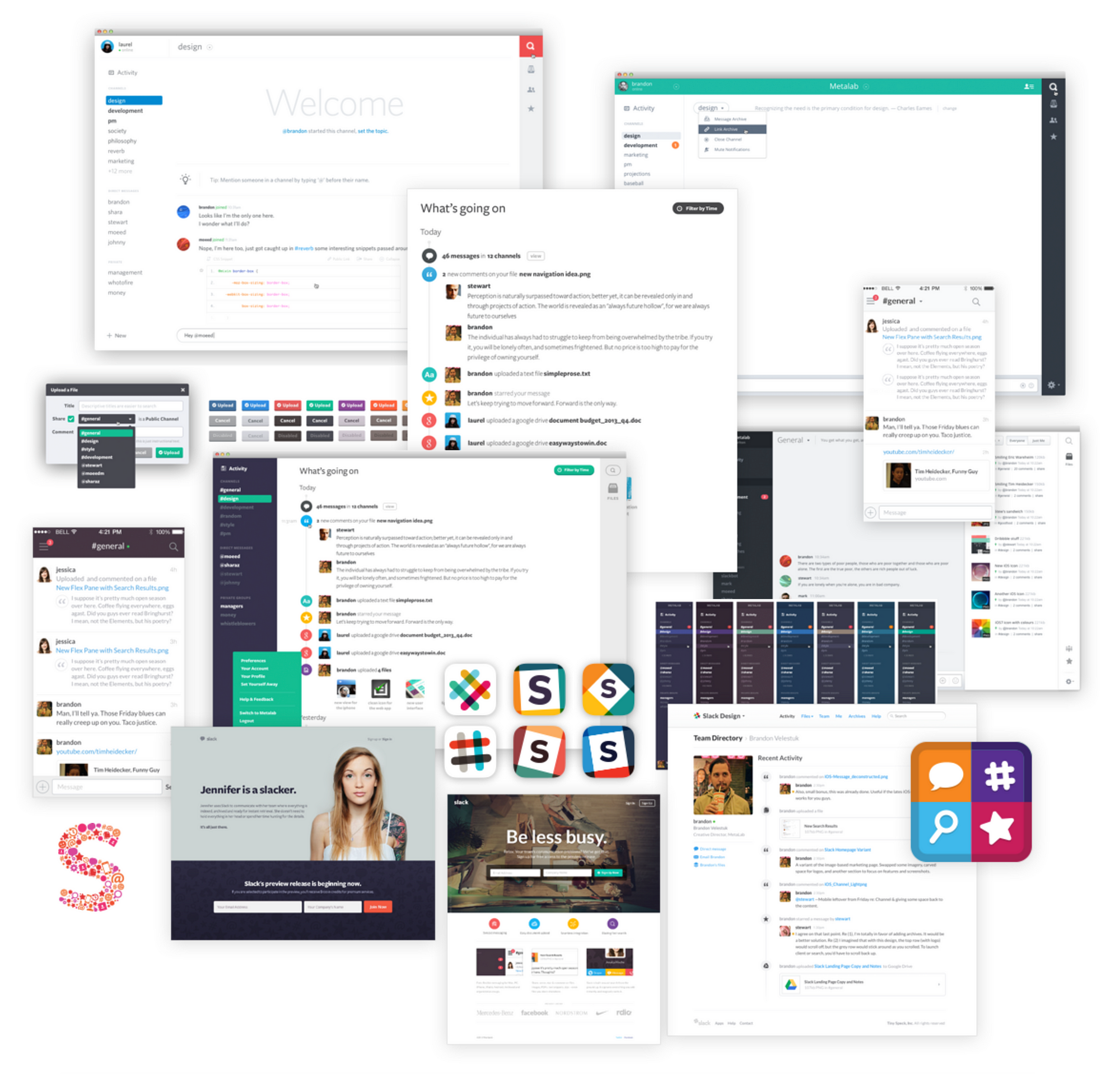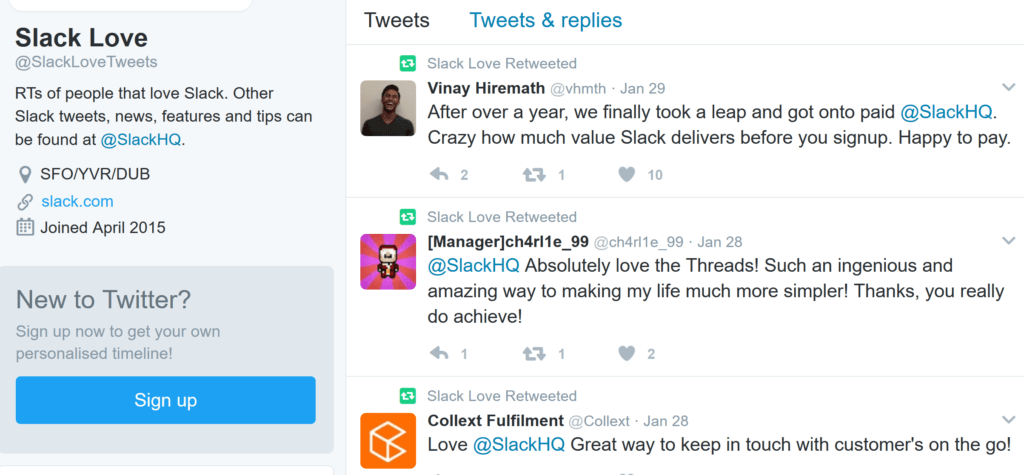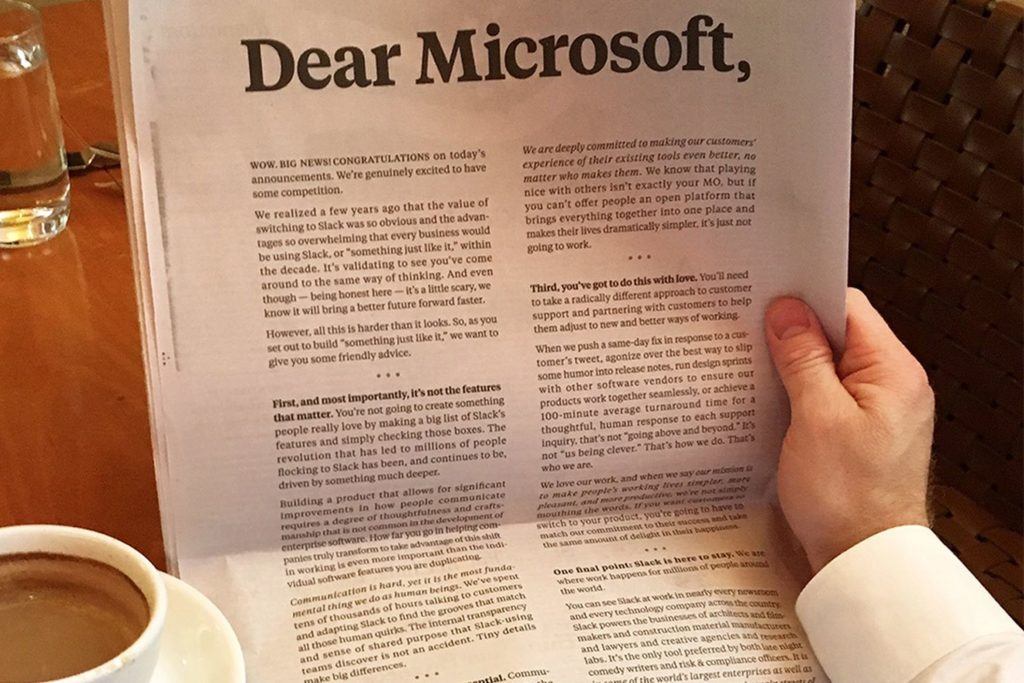Slack: Where You Go to Get Work Done

Slack is on a mission to make internal email obsolete, with 4 million DAU and growing its well on its way to do so.
Slack: Where You Go to Get Work Done
I first used Slack during my internship last summer. Building a startup was no easy feat with so much happening on different fronts, but Slack kept the team on track and always up-to-date. The first few days were tough. Our developer sat in one corner with his headphones on, and I sat a few meters away from the founder but we didn’t speak for hours. This was definitely not something I was used to. Very quickly though I realized that slack was not only helping me manage my workflow, it kept me in constant contact with the team and completely changed the way I work.
Slack is winning the hearts of teams worldwide, not just mine ..
Slack anytime, anywhere:
With both a desktop and a mobile version, users are never disconnected. “And when it’s easier to Slack someone on your phone than text them, you’ve got something.”
“Freemium” with an incredibly generous free version:
Unlimited number of users, searchable archives for up to 10k messages, up to 10 integrations, and 5GB of storage! Pretty much enough to keep you going on the free version for a very long time. 4m+ DAU, of which 1.25m choose to pay. Clearly users that see the value are hooked.
Elegant and user friendly:
Techie or not, Slack is for everyone. With a smartly designed and intuitive user interface Slack is easy to use whether you are a property management company or a tech startup.
Versatile integrations to create the perfect custom platform:
With 750+ apps in the Slak App directory, Slack lends itself to be custom configured to the end-user’s needs. Notable apps include Salesforce, Zendesk, Trello, GitHub, and of course HBR!

“early design iterations (2013)”
Challenge Ahead:
Slack today is mostly used by startups and SMEs, getting large corporations to adopt it across the organization has been challenging. Slack just introduced its latest product Slack Enterprise Grid that was designed for companies with 500+ employees. Many players in the market have had their eyes set on the space, including Microsoft. Microsoft just unveiled its latest product Microsoft teams which will be directly competing with Slack. Check out the photo below of Slack’s letter as a response to Microsoft Teams. This was a full page ad in the New York Times!
So far, Slack is a clear winner. Not only is it aggressively growing and expanding its product offering, it’s making money too. Will this be the end of e-mail though? Personally, I saw a significant reduction in internal e-mails over the summer and so do other teams that use Slack. This is most definitely not the end of email for good, we’ll always need e-mail for external communication. But Slack is surely changing the way we work within our companies.
With many players trying to enter the space, it will be interesting to see how this unfolds. Will new players offer the same simplicity, versatility, and user experience? I have my doubts. Slack has proven its value for small to medium entities, and it will definitely be interesting to see how its Enterprise Grid will do with larger companies that require significant levels of security.
https://slack.com/
http://expandedramblings.com/index.php/slack-statistics/
https://medium.com/conveyor-ideas/5-reasons-slack-is-winning-hearts-of-users-29cd3322d878#.jsu67k1y3
https://www.linkedin.com/pulse/surprising-adoption-slack-non-technical-teams-grace-schroeder
http://time.com/4092354/how-e-mail-killer-slack-will-change-the-future-of-work/
https://medium.com/@awilkinson/slack-s-2-8-billion-dollar-secret-sauce-5c5ec7117908#.xg0a1nh31
http://www.theverge.com/2016/11/2/13497766/slack-microsoft-teams-new-york-times-ad





Great post! It seems clear that Slack has found itself deeply embedded in small enterprises seeking to improve efficiency. Presumably the benefit for larger customers would be even greater given the exponentially larger amount of potential conversations. Are there any concerns around security and privacy in this product? Is there any way to create network effects between companies rather than just within the firms? Combined with other software offerings this could be very powerful – makes sense that Microsoft would want to get involved.
I have always been a loyal Slack fan (including trying to unsuccessfully convince my section last year to use Slack instead of GroupMe. Just to note – all RC sections this year are on Slack instead). I will be interested to see how Slack can scale up and support larger enterprises and how it plans to differentiate and retain it’s customers from the incumbents like Microsoft, Google, etc.
Thanks Lulu! I used Slack at work this summer and absolutely loved it as well. I did wonder whether my team saw any real efficiency gains from it however. My boss was a cross-functional leader and was constantly being pinged on Slack to the point that she was never truly “present” in a meeting as she was fielding questions from all parts of the org. I found it distracting just to watch her! I therefore wonder if there is a point at which this sort of app can be value-destructive once it is adopted across an organization, and what sorts of features or controls need to be built to prevent that from taking place.